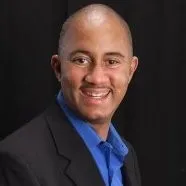Many of our individual activities leave behind a digital trail.
Cell phone activities.
Credit cards.
Social media engagement.
Website clicks.
Today, our digital trails have become so expansive that people are more conscious of privacy issues than ever before. Just because you share personal information through the devices you use every day—like ordering groceries online, texting a friend, or sharing a picture on a private account—does not mean you want to completely give up your right to individual privacy. No one wants their personal information shared without permission and people want to know how their private data will be controlled and used by the companies that receive it. This is a fine line that leading companies in a variety of fields walk on a daily basis, and it requires specific and detailed privacy policies to best serve their customers.
The issue of protecting the community while safeguarding privacy is even more paramount when public agencies, like police departments, have access to countless trails of personal information.
Community and Privacy: A Deeply Rooted Tension with Police
In policing, there is a social contract: Community members agree to give up certain freedoms in exchange for protection.
But for many communities, particularly underserved neighborhoods in urban environments, this social contract is currently broken.
“[These] communities don’t have access to social and economic development due to underfunding and unjust policies,” said Dr. Gerard Tate in his article about police-community relations. “Police presence increases to fight crime, but due to decades of abuse, communities of color often mistrust police and view them as oppressors, not protectors.”
To Dr. Tate’s point, many Americans often do not see the police as protection because this social contract has been violated too many times, which means community members are no longer willing to give up other freedoms, like privacy, in exchange for a service they don’t perceive as beneficial.
So, when police have access to data that even community members don’t have access to—via technology tools that they use to fight crime, like SoundThinking’s ShotSpotter acoustic gunshot detection technology—the spotlight upon the issues of community safety and personal privacy intensifies and the technology often gets placed in the crosshairs.
SoundThinking’s Approach to Community and Privacy
Public safety technology vendors play an important role in protecting the community and maintaining privacy.
That’s why at SoundThinking our motto is do no harm. Our SafetySmart™ Platform prioritizes the best interests of the communities we serve, particularly when it comes to personal privacy.
In the spirit of transparency and recognizing the utmost seriousness of these issues, in 2019, we commissioned an independent audit of our ShotSpotter® technology, processes, and policies to get an unbiased view of our approach to privacy.
Independent Privacy Audit
The primary goal of this audit, conducted by the Policing Project at NYU Law School, was to help instill more trust in the communities with a ShotSpotter presence. We firmly believed that the best method to accomplish this goal was to bring in a third party to help us pinpoint where there could be privacy issues regarding our operations.
As a result of the audit of our ShotSpotter technology, we adopted 11 detailed recommendations to minimize any risk and mitigate potential privacy concerns, including:
- Substantially reducing the length of audio stored on each sensor from 72 hours to 30 hours
- Requiring supervisor approval for any audio download longer than one minute
- Minimizing length of audio snippets to 1 second before and after the incident itself
- Declining to share precise sensor locations with law enforcement
- Creating a clear audit trail for every audio download
- Strengthening internal access procedures
Customers, public policy directors, and privacy advocates have welcomed the results of the audit.
“I think the ShotSpotter audit is a really welcome development,” said Catherine Crump, director of the Samuelson Law Technology & Public Policy Clinic at the University of California at Berkeley School of Law. “There has been far too little attention paid to the details of how surveillance technologies operate: what data they collect, how that data is shared, how that data is kept.”
“We haven’t had a vendor that’s gone so far out of its way to do everything correctly,“ Brian Hofer, a privacy advocate and chair of the Oakland-based Privacy Advisory Commission said. “[SoundThinking] didn’t just do a privacy audit or just talk to the ACLU or just talk to experts. After, they amended their practices and really made these significant steps in the right direction.”
Community and Privacy: Key Takeaways for PDs and Communities
Police Departments
Now more than ever, PDs have access to cutting-edge technology to better fight crime, address gun violence, investigate and close cases, and to engage positively with the community. But with this technology comes a heightened concern for community privacy.
Communities
We’ve talked before about how the relationship between police and community functions as a social contract, one in which community members agree to give up certain liberties in exchange for protection. This relationship can fracture when community members feel like police are not holding up their end of the bargain. But the hope is that, as community members recognize the extensive measures that companies like SoundThinking are taking, they will enter this social contract with greater peace of mind.
It all goes back to Sir Robert Peel’s original philosophy for policing in the 1800s. He boiled down the definition of police as a “public servant,” one operating in the best interest of communities. At its heart, protecting privacy is a critical component of looking out for a community’s best interest. That is why SoundThinking continues to prioritize citizen privacy while providing law enforcement officers with the technology needed to keep our communities safe.





